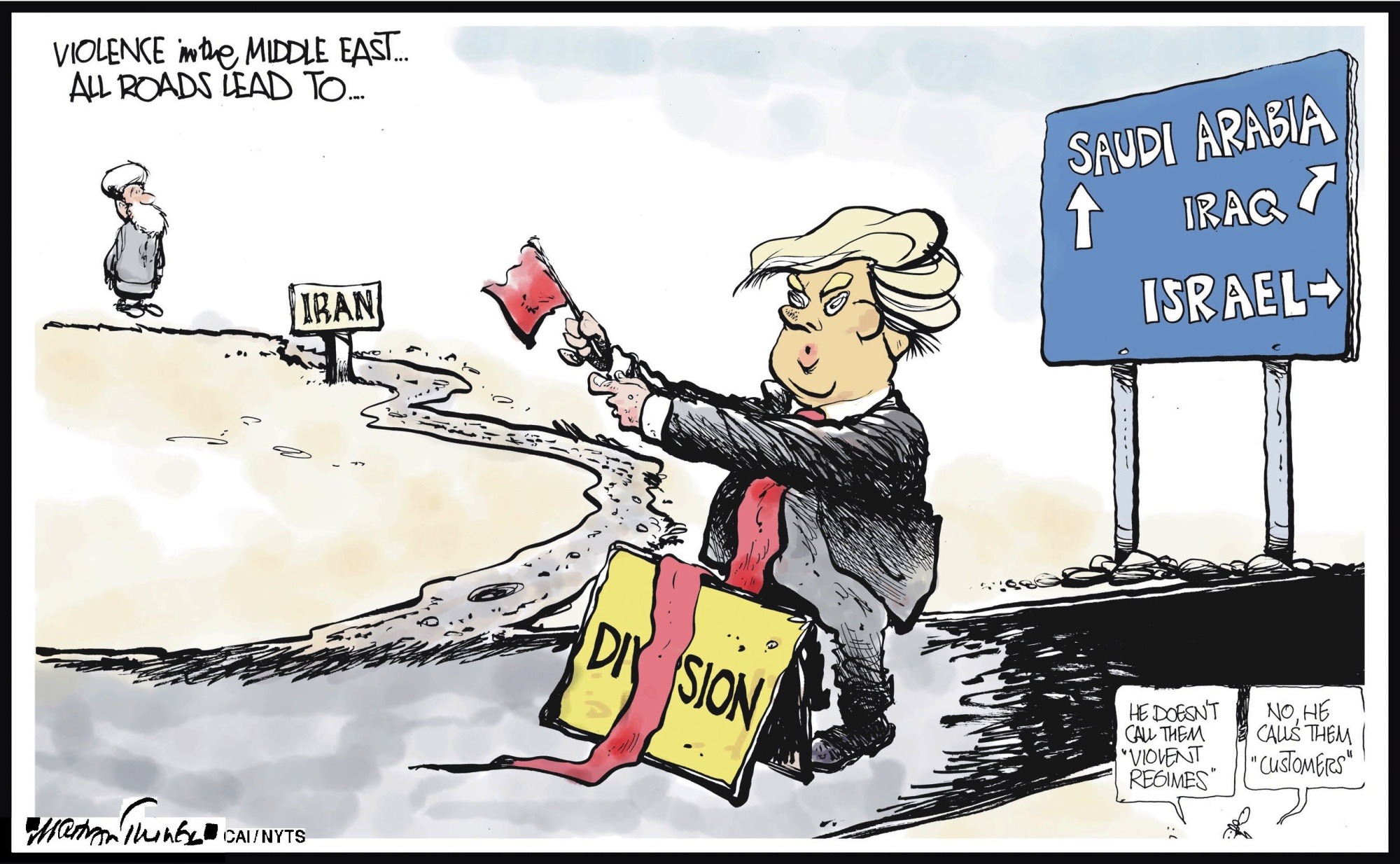While the world has been focusing on Donald Trump's summits with NATO and Russian President Vladimir Putin, tensions are escalating dangerously between Washington and Tehran. On Sunday, Iranian President Hassan Rouhani cautioned his U.S. counterpart not to "play with the lion's tail." Using the harshest words of his presidency, Rouhani told a gathering of Iranian diplomats that "America should know peace with Iran is the mother of all peace, and war with Iran is the mother of all wars." Trump responded with an all-caps tweet that Iran should "never ever threaten the United States again."
In recent days Rouhani has warned that Iran may block Persian Gulf oil shipments if its own exports are stopped; Iran's Supreme Leader Ayatollah Khamenei has proclaimed Trump's policies a declaration of war and Revolutionary Guards Commander Mohammad Ali Jafari threatened that "we will make the enemy understand that either all can use the Strait of Hormuz or no one." In response, U.S. Central Command spokesman Bill Urban stated that the U.S. Navy stands "ready to ensure the freedom of navigation and the free flow of commerce wherever international law allows."
Such drastic escalation would not only mean the death of the multinational Iran nuclear deal known formally as the Joint Comprehensive Plan of Action — from which Trump withdrew in May — but the start of a U.S.-Iran war and a broader conflict that would make ongoing regional crises pale in comparison. Any U.S. effort to block Iranian oil exports would be a violation of U.N. Security Council Resolution 2231 endorsing the nuclear deal. But if Tehran were to respond in kind by blocking oil shipments through the Strait of Hormuz, Europe, Russia and China will drop their support for the JCPOA and join the U.S. to pass a punitive U.N. Security Council resolution against Iran.

















With your current subscription plan you can comment on stories. However, before writing your first comment, please create a display name in the Profile section of your subscriber account page.